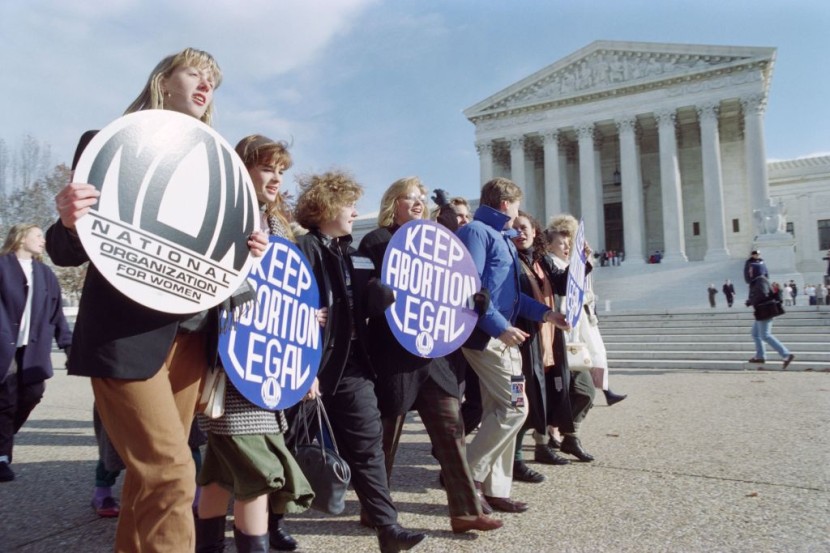
On Tuesday, Ohio Secretary of State Frank LaRose announced that enough legitimate signatures were submitted to place an amendment to the state's constitution on the ballot in November.
The proposed amendment in Ohio would guarantee that "every person has the right to make and carry out reproductive decisions."
Abortion Rights Amendment Cleared For Ohio's November Ballot
The statewide vote would occur a year after two of Ohio's neighboring states - staunchly conservative Kentucky and the political battleground of Michigan - supported abortion rights via ballot initiatives. According to CNN, Elizabeth Walters, chair of the Ohio Democratic Party, stated after the announcement that it was an "essential victory for Ohio women."
Prior to the November election, Ohio voters will participate in a special election on August 8 called by the Republican-controlled legislature to determine whether to raise the current simple majority threshold for amending the state constitution to 60%.
Opponents of such a special election include abortion rights advocates and two former Republican governors of Ohio, Robert Taft and John Kasich, who point out that the session is scheduled to occur during the sluggish summer season when turnout is anticipated to be low.
At a forum in Dayton last month, Taft referred to it as a "significant error" and added, "This is a type of change that every person who votes in a presidential election should contemplate."
Ohioans United for Reproductive Rights, which collected signatures and submitted the petition, said in a statement released Tuesday that sponsors of the August special election "have admitted it was placed on the ballot for one reason: to silence the voices of the overwhelming majority of Ohioans who support reproductive rights and abortion access."
The measure's supporters still face another obstacle. Republicans in the state legislature want to make the amendment more difficult to pass, so they have proposed a ballot question that would require 60 percent of voters instead of a simple majority to amend the state constitution.
Anti-abortion groups characterize the amendment as "extreme" and have argued that it would allow abortion "until birth" and enshrine a right for minors to undergo gender-transition surgery without parental consent, despite the fact that the amendment allows the state to prohibit abortions later in pregnancy and contains no language regarding gender transition.
They implored electors to participate 0in the August special election to make passage of the abortion amendment more difficult, as per NY Times. This month, supporters of the measure submitted more than 700,000 signatures. Local board of elections officials examined these signatures over the past few weeks, discarding duplicates and signatures from individuals who were not registered to vote.
Read Also : Hunter Biden Counsel Accused of Lying in Criminal Tax Case; Republicans Seek To Block First Son's Plea Deal
Ohio Abortion Rights Measure
The proposed amendment would assure that Ohioans have the right to make their own reproductive decisions, including contraception, fertility treatment, continuation of pregnancy, treatment for miscarriage, and abortion. The state could restrict access after viability, which occurs when the patient's treating physician determines that the fetus has a significant chance of surviving outside the uterus if reasonable measures are taken.
According to the petition language, abortions could be performed after that point to save the life or health of the expectant woman. After the US Supreme Court overturned Roe v. Wade last year, proponents argue that this language is necessary to safeguard abortion access.
In the months that followed this ruling, Ohio enacted an abortion prohibition prohibiting physicians from performing abortions after the detection of cardiac activity approximately six weeks into pregnancy. This law has been provisionally suspended, and abortion is now lawful in the state up until 21 weeks and six days gestation.
Now, the five-member Ohio Ballot Board must ratify the November ballot language. The board's chairman is Ohio Secretary of State Frank LaRose, a Republican candidate for the US Senate. Per USA Today, he has opposed the abortion measure and supported Issue 1 on the August ballot to make amendments to the state constitution more difficult.
© 2026 HNGN, All rights reserved. Do not reproduce without permission.








